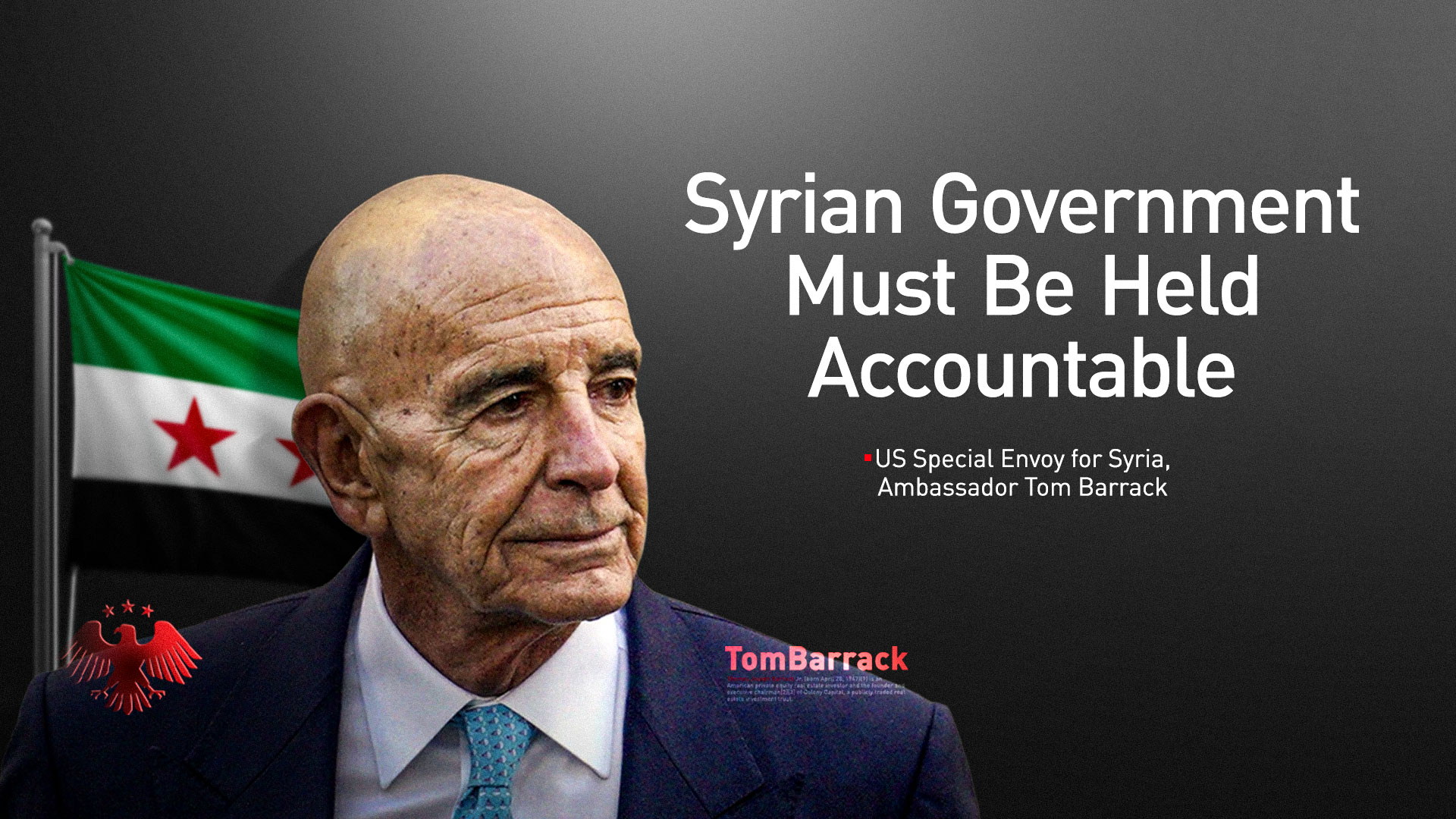US Envoy: Syrian Government Must Be Held Accountable
US Envoy Tom Barrack calls for Syrian gov't accountability after recent violence. In Lebanon, he says US will use influence, not coercion, rules out talks with Hezbollah, and dismisses talk of sanctions on officials.

By Kamaran Aziz
ERBIL (Kurdistan24) – The US Special Envoy for Syria on Monday described the recent deadly violence in the country as a “horrible set of events,” declaring that Syria’s new government must be “held accountable” for restoring order while simultaneously being given the responsibility to govern, as he defined a US regional role centered on influence rather than coercion.
Speaking at a news conference in the Lebanese capital of Beirut, Ambassador Tom Barrack addressed the recent turmoil in Syria, linking it to the broader need for regional stability and outlining the American response to the crisis.
"The way the U.S. in general has reacted to all the events in Syria is with unbelievable concern, pain, empathy, aid," Barrack stated. He provided a detailed analysis of the challenges facing the country, which has been roiled by sectarian violence.
Barrack characterized Syria as having a "new government that's been in existence for seven months" attempting to manage a complex situation inherited from "15 years of atrocities." He contrasted this with Lebanon, noting Syria has "existing minorities and tribes that have lived most of their children's lives in chaos in another government."
He explained that in such an environment, when crises erupt, people naturally "resort to their tribe," following a pattern of "individual, family, tribe, and then nation at last."
The envoy described the outcome of this dynamic as "horrible" and "unthinkable," but expressed hope that "a consolidation of these issues occurs quicker" as a result. He placed the responsibility for managing the crisis squarely on the Syrian leadership.
"You have a Syrian government in effect," he said. "They need to be held accountable. They also need to be given the responsibility that they're there to do." He identified a key cause of the recent problems as a failure of "communication amongst all these entities that just did not function."
From his location in Beirut, Barrack then turned his attention to Lebanon, where he said his goal was to "bring stability and hope to the region." He praised the country’s leadership and ongoing reforms.
"Your leaders have been more than helpful in trying to come to a set of circumstances and remedies that will soften the situation," he said, adding that Lebanon's concurrent reforms "are amazingly plaudible and significant." He stated the ultimate goal is "prosperity" achieved by combining security with economic reform.
During the press conference, Barrack was pressed on the US position regarding Hezbollah and its influence in Lebanon. He reiterated the official American stance, stating, "America has Hezbollah as a foreign terrorist organization, so we have no skin in the game in discussing anything with Hezbollah." He clarified that US diplomatic engagement is with "the nation-state, your government."
He repeatedly and forcefully defined the limits of American power and its diplomatic approach. When asked about potential consequences if US objectives are not met, Barrack was clear.
"When we say what happens to the U.S. if this doesn't happen is disappointment," he explained. "There's no consequence. It's disappointment. We're here trying to help, trying to influence, trying to usher, trying to bring calm minds together and use our influence on all sides, just influence... But there's no consequence. There's no threat. There's no whip."
He applied the same principle to Israel, pushing back against the idea that the US could force its ally to take certain actions. "Well, we can't compel Israel to do anything, can we?" he said. "The U.S. has no business in trying to compel Israel to do anything."
Instead, he placed the onus on the region's leaders and people to find solutions. "It's up to all of you when you're fed up with tribal rivalries, when everybody has finally come to the conclusion that there has to be a better understanding with your neighbors as to how you live," he stated.
When asked about the possibility of imposing sanctions on Lebanese officials, Barrack dismissed the idea as a current tool. "Look, that's way outside of the scope of anything we're thinking at the time," he responded. "What we're trying to do is to bring peace and tranquility to the process, not add more logs on a fire."